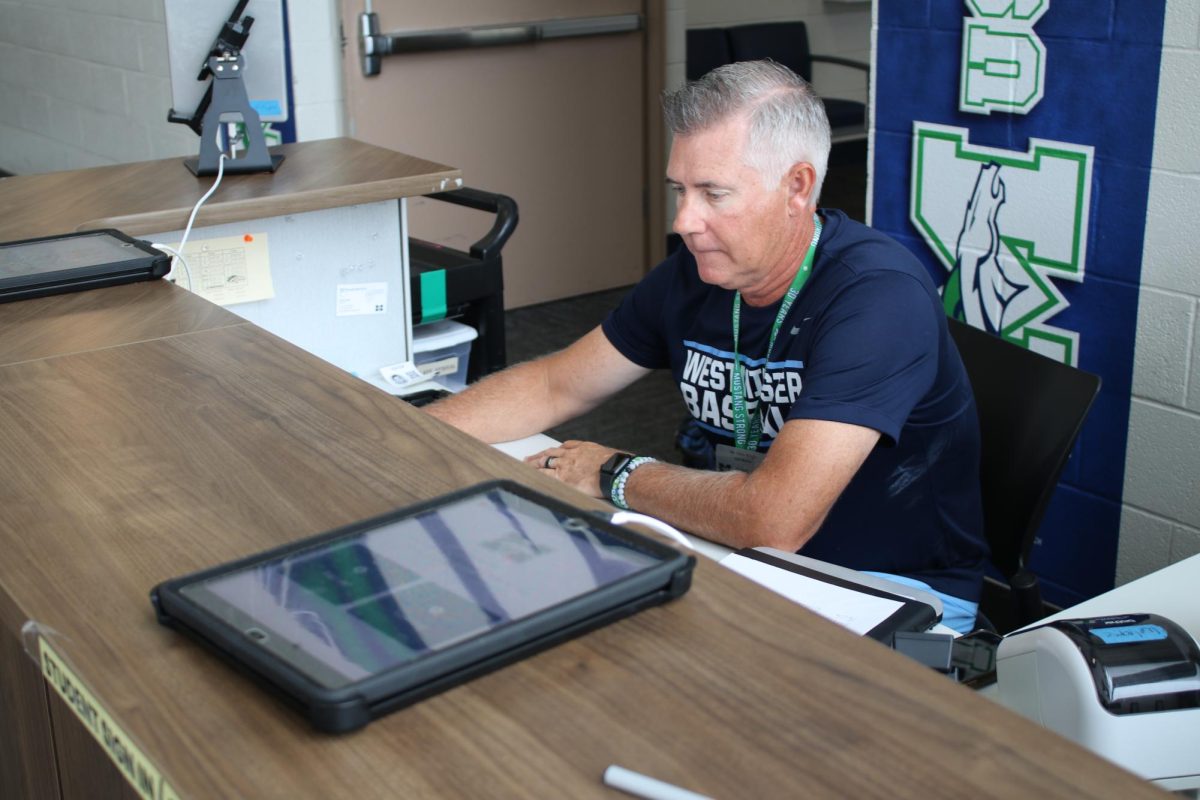After leaving home at 7:50 a.m., Varshini Appan Premkumar, senior, was almost late to her second hour class.
Like many students, Appan Premkumar lives off of Reinke Road and experiences heavy traffic on Clarkson Road and on back routes like Kehrs Mill Road. With the modified attendance policy of three tardies equaling an afterschool detention, students such as Appan Premkumar are frustrated.
“I feel like it’s too strict because sometimes you get to school late by a few minutes and that still counts as tardy,” Appan Premkumar said.
Appan Premkumar said the policy would be better if the number of tardies leading to a detention was higher to give more grace to students who experience similar traffic.
Changes to the attendance policy include a restriction on students leaving and returning within the same school day and more stringent records of tardies and guidelines for excused tardies or absences. Parents can no longer excuse absences as “personal other” and doctor’s notes must be presented if a student has a doctor’s appointment. Any work missed during an excused absence, even assessments, can not be made up by the student.
Principal Dr. Tracy Waeckerle said these modified policies are an effort to increase attendance and add more documentation and explanation rather than just the use of “personal/other” as an excuse for absences.
“If you have to come late, or you have to leave early, or you have a doctor’s appointment that’s in the middle of the day, we just need to be able to document that,” Dr. Waeckerle said.
Dr. Waeckerle said that on MHS’ performance review for the state, the score for attendance was lower than average during the 23-24 school year. She reported in a letter to families that there were 59,000 late sign-ins to school in the last two years and that 16,000 were categorized as personal/other in the last year.
“I think it’s going to promote higher levels of learning,” Dr. Waeckerle said. “Hopefully it’s just going to improve our overall performance as a school.”
Jennifer Akin, Senior Class secretary, said this policy has been mostly well-received by parents and staff.
“Teachers are happy about it. A lot of parents are happy about it, but then we’ve had some that have been a little frustrated by it,” Akin said.
Akin said it is too early to make conclusions about the success of the policy, but she has seen an increase from parents questioning if it’s okay for students to have doctor’s appointments.
Russell Gottlieb, math teacher, experienced issues with students skipping assessments during his Precalculus class last year.
“Usually, I’ve noticed that a kid was in school for first period and then they were not in school second period for my test, and then somehow they were back in the building,” Gottlieb said. “It wasn’t coded as anything other than just ‘other’ in the grade book.”
Though most of his students would be present, Gottlieb said he had habitual skippers who would skip every test. Missing assessments made the course more difficult on the student, as they often had to miss a lecture to take the test late and would be behind on content.
“Especially second semester, when we learn a lot of new stuff, it’s hard to get caught up and really understand the material when they miss,” Gottlieb said.
Gottlieb said the new policy, especially the section that prevents students from making up work missed during an unexcused absence, will be great if enforced.
“I think it will really benefit kids,” Gottlieb said. “There won’t be as much cheating, and the kids will not miss as much instruction time.”





